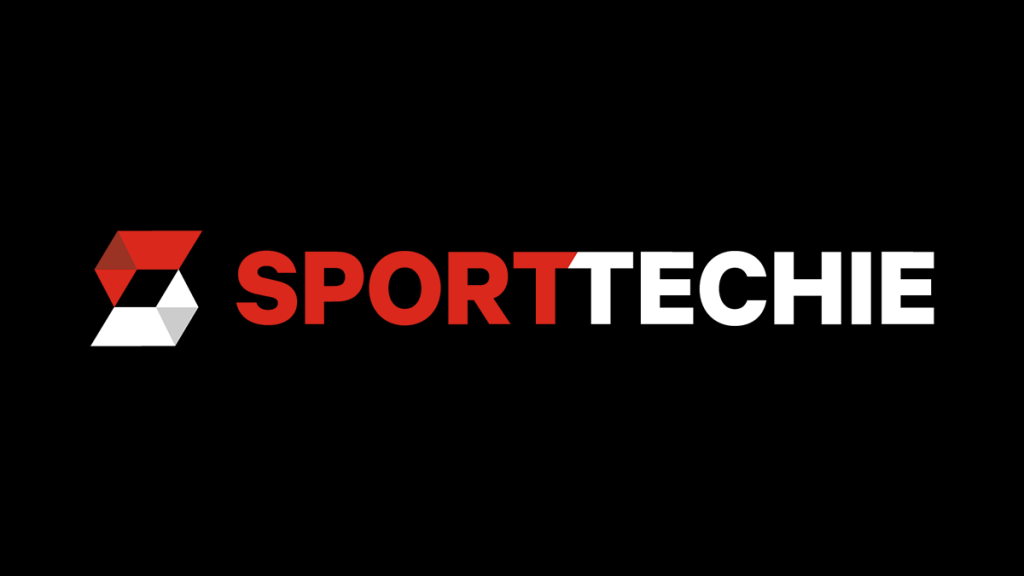
Liga MX Begins Using Fan ID System After Stadium Violence and Heckling, Will Require Facial Recognition Next Season
By
Andrew Cohen
Fans who attended Thursday’s CONCACAF World Cup qualifier between the USMNT and Mexico were required to show a QR code and form of identification for entry into Estadio Azteca. The process is part of a new registration system called Fan ID that’s being implemented at Mexican soccer stadiums in response to recent incidents of violence and anti-gay chants from fans.
Estadio Azteca has a capacity of 87,523 fans, but Thursday’s game was limited to 50,000 as part of crowd control efforts from the Mexican Football Federation. FIFA previously required Mexico to play home qualifier matches without fans as punishment for homophobic chants. Fans found to make inappropriate chants will be given a five-year ban from Mexican soccer stadiums, according to ESPN.
Facial recognition to identify fans will also be required at all stadiums for the 2022-23 Liga MX season, according to the Los Angeles Times. “We have to implement digital security measures to identify those who attend,” Liga MX president Mikel Arriola said March 7, two days after the Querétaro vs. Atlas match that saw a brawl in the stands result in 26 fans being hospitalized.
MLB Takes Equity Stake in Sensor Tech Company Diamond Kinetics
By
Joe Lemire
Major League Baseball has taken an equity stake in Diamond Kinetics in conjunction with the recent partnership that naming the sports tech company the league’s trusted youth development platform. Chief competitor Blast Motion previously was MLB’s official bat sensor technology, though that arrangement ended a few years ago.
Diamond Kinetics is best known for its bat sensor but also makes a sensor-embedded baseball pitch tracker as well as a suite of analytic tools to provide data, visualizations and other feedback.
The thrust of the MLB partnership is to gamify player development. Diamond Kinetics plans a series of mobile-based, MLB-themed digital experiences that encourage baseball and softball instruction and development while creating competitions and offering rewards to users who unlock achievements.
Diamond Kinetics is already a partner of the MLB Draft Combine and USA Baseball’s Player Development Pipeline League, and the newly expanded deal make its devices and apps accessible to Play Ball, Reviving Baseball in Inner Cities (RBI) and other youth programs.
Second Spectrum to Install Optical Tracking Cameras at Liga MX Franchise Club Necaxa’s Estadio Victoria
By
Joe Lemire
Genius Sports-owned Second Spectrum will install its optical tracking cameras at Liga MX franchise Club Necaxa’s Estadio Victoria and provide the club with performance analytics and fan engagement tools, marking the first such deployment in Latin America.
Second Spectrum, which uses AI-powered algorithms to capture and analyze on-pitch player data, is the official provider for the English Premier League, MLS, Danish League and NBA and was just used as a broadcast tool for the NCAA’s March Madness men’s and women’s basketball tournament. Among the soccer-centric metrics that will be made available to coaches and fans include player running speeds, expected goal probabilities, shot tracking data and more.
In addition to the data capture and analysis, Second Spectrum provides video augmentation tools to help illustrate key moments, such as was used by CBS Sports for the RomoVision feature of its NFL coverage.
Genius Sports, which acquired Second Spectrum for $200 million in May 2021, became Liga MX’s official data and integrity partner in Nov. 2020. Necaxa’s ownership group includes celebrity and athlete investors Mesut Ozil, Eva Longoria, Kate Upton and Justin Verlander.
Major League Rugby Partnering With Tappp to Add On-Screen Betting to The Rugby Network
By
Andrew Cohen
Interactive sports betting company Tappp has signed a multi-year deal with Major League Rugby to add on-screen free prediction contests and real-money betting to The Rugby Network. Matches livestreamed on The Rugby Network will show pop-ups that let viewers navigate their remote control to make predictions and bets without leaving their screen during MLR games.
Tappp’s platform is “sportsbook agnostic” and confirms a viewer’s location in real-time to then show on-screen Major League Rugby wagers offered by sportsbooks in their state. Tappp has also announced a $10 million Series B funding round led by Accomplice, ADvantage and Verance Capital. Also investing in the round are Boston Celtics co-owner Stephen Pagliuca and Peter Tomozawa, a part owner for both the Seattle Sounders and Vegas Golden Knights.
In addition to betting broadcast integrations, Tappp makes pre-paid cards for streaming services and sportsbooks that are sold in retail stores. The company has sold pre-paid cards for NFL Game Pass and MLB.TV at retailers such as Walmart and GameStop. BetMGM also partnered with Tappp to sell betting gift cards.
“The partnership with TAPPP is the latest step in our commitment to increase the fan base and actively engage our US fans ahead of the next Rugby World Cup,” MLR commissioner George Killebrew said in a statement. “TAPPP provides our league entirely new and innovative ways to enhance the fan experience during live matches.”
BIG3 to Offer Fans a Minority Stake in Its Teams Through Blockchain
By
Tom Friend
The BIG3, the 3-on-3 basketball league featuring mostly retired NBA players, is allowing fans a chance to purchase a stake in any of its 12 teams via blockchain technology.
Referred to as decentralized team ownership, the league is offering two tiers of entry for fans. The 25 Fire option costs $25,000 each, and the 975 Gold costs $5,000 each. Either option lets fans vote on “team actions,’’ access practice and after-parties, strategize with their team’s coach and captains, meet-and-greet players, speak with referees and buy Big3 NFTs.
Entering its fifth season this summer, the tech-conscious league is also offering participating fans a percentage of future team sales, initial rights to expansion teams and interaction on the phone with league co-founders Ice Cube and Jeff Kwatinetz, as well as commissioner and NBA Hall-of-Famer Clyde Drexler.
«This is team ownership in the 21st century,» Ice Cube said in a statement Monday. «We’ve created a special bond with our fans since our first game in 2017 and this is the natural next step. We want fans to feel even more invested in their favorite squad, more connected to their favorite player, and provide them with the opportunity to grow with us. While other leagues are flirting with fan ownership, none of them have more meat on the bone than BIG3 team owners.”
Grabyo Partners With The Parleh as Ontario Debuts Sports Betting
By
Andrew Cohen
Video production software Grabyo has partnered with betting-focused Canadian sports media outlet The Parleh. Today marks the first day of private-sector sports betting in Ontario, the first Canadian province to legalize online sports betting.
The Parleh will use Grabyo’s cloud-based video editing and distribution platforms to produce live video shows that stream on The Parleh’s website and social media. Toronto-based The Parleh gets more than three million video views per month and will forgo building a hardware-based production studio to instead rely on remote production with Grabyo.
The Parleh will also use Grabyo to produce content for partnered sportsbooks. FanDuel, theScore, DraftKings, BetMGM and PointsBet are the sports betting app expected to launch in Ontario. Single-game online sports betting was legalized in Ontario in Aug. 2021, but has thus far been limited to ProLine+, an app operated by the Canadian government’s Ontario Lottery and Gaming Corporation.
Gloria Football Pledges €10 Million to Sponsor Newly Professionalized Women’s Soccer League in Spain
By
Joe Lemire
Social soccer scouting app Gloria Football has pledged €10 million ($11 million) to become the titular sponsor of the newly professionalized women’s soccer league in Spain.
Gloria’s investment is contingent on the successful candidacy of Maria Teixidor and Reyes Bellver to lead the league; Teixidor is a former FC Barcelona executive, while Bellver is a sports lawyer and FIFA advisor. The two women also have €40 million in funding for the Spanish women’s league from Muse Capital. Assia Grazioli-Venier, a Muse co-founder, was one of the first women to be a Juventus FC board member who has invested in both Gloria and the NWSL’s Washington Spirit.
Victoire Cogevina, a former soccer agent who founded and is now CEO of Gloria, made the commitment while in Barcelona for last week’s Champions League match between FC Barcelona and Real Madrid, which was played before a record 91,553 crowd. Gloria launched its beta product—both for digital video scouting and soccer-centric social network—in 2019 with the Argentina Superliga and raised a $3 million seed round in 2021 led by the 776 Fund, which was started by Reddit co-founder Angel City investor Alexis Ohanian. Among Gloria’s other investors is Peter Tomozawa, the president of business operations for the Seattle Sounders in MLS.
Spain’s top women’s soccer league began in 1988 but was only formally recognized as professional last month. Its current title sponsor is Spanish clean energy company Iberdrola, who has paid a reported $1 million annually for the rights. The agreement is scheduled to run through the 2024-25 season.
Premier League Club Burnley FC Expands Deal With AiScout to Host Virtual Trials
By
Andrew Cohen
English Premier League club Burnley FC will continue its talent identification partnership with AiScout. The app uses artificial intelligence to evaluate players and will host virtual trials for Burnley’s women’s first team and male academy teams.
AiScout’s mobile app asks users to upload images and profile details alongside videos of themselves from games or performing soccer drills. The app’s AI analyzes the video and then assigns ratings for a player’s skills such as dribbling, speed and agility. Athletes who impress AiScout will be invited to in-person trials hosted by Burnley FC.
Burnley FC gave academy tryouts to 28 players last year who were identified through AiScout. This year’s applications are open to women and girls from across the UK and males ages 8-21 who live within 90 miles of Burnley’s training facility.
“Over the last year, the platform has been an invaluable tool for our Academy staff to continually evaluate data and select players for trials,” Burnley FC chairman Alan Pace said in a statement. “Thanks to the app’s extensive AI capabilities, we are able to look for different positions, metrics and types of players depending on the needs at the time. We look forward to this next phase and further expansion plans that are in the pipeline throughout 2022.”
Of the 21,000 amateur soccer players to join AiScout, 45 were invited to trials with professional clubs, including six trials with Premier League teams. The app’s success stories include a player who signed with AFC Bournemouth and others who made the under-19 national teams for the Republic of Ireland and Sri Lanka.
AiScout is a member of FIFA’s innovation program. The app is part of a growing trend across sports to analyze biomechanics and player performance through phone cameras, which is why “Smartphone Tracking” won SportTechie’s Outstanding Innovation category as part of our recent fifth-annual awards.
Liga MX Clubs Atlas, Santos Laguna Partner With Facial Recognition Company Incode to ID Fans
By
Andrew Cohen
Facial recognition and identity verification company Incode has partnered with Orlegi Sports, owner of Liga MX clubs Atlas FC and Santos Laguna. The clubs will implement Incode’s technology ahead of Mexican soccer’s facial recognition mandate to admit fans at all Liga MX stadiums for the 2022-23 season.
Atlas played Querétaro in the suspended March 5 match that saw a bloody brawl break out in the stands among fans from both teams. The incident prompted Liga MX to require facial recognition starting next season as part of the league’s Fan ID program. Santos Laguna began using Incode’s AI-based verification system for fans that attended its April 3 match against CF Pachuca.
Incode’s software asks users to upload a selfie and scan their government issued ID to verify someone’s identity. Fingerprint verification is also among the security tools offered by the company. Incode is based in San Francisco and raised $220 million in December to value itself at $1.25 billion.
“Incode has a fast and reliable platform that complies with personal data protection regulations and enhances Orlegi Sports’ goal to provide safe environments for those attending its soccer games,” Incode CEO Ricardo Amper said in a statement.
In U.S. soccer, MLS club LAFC partnered with Alcatraz AI last year to use the company’s facial recognition to verify players and employees at access points for the club’s stadium and training facility. Facial Recognition is also being used at Citi Field, where the New York Mets will offer Wicket’s facial ticketing system with the aim of improving fan ingress at home games.
San Francisco Giants Expand Partnership With Oracle, Will Use the Company’s Concession-Stand Technology
By
Tom Friend
Spectators attending San Francisco Giants home games at Oracle Park this season will be able to order all of the venue’s signature food and beverage items – such as the popular Crazy Crab Sandwich – on their mobile devices.
The Giants announced Friday that, by adding Oracle MICROS Simphony Cloud Point of Sale (POS) technology, the team will be able to more efficiently serve guests at their seats, while using restaurant business analytics and real-time data to keep track of inventory and lessen food waste.
For example, if a food item is out of stock, fans will be alerted either on their mobile device or via digital message boards. Or, if an item is undersold, the same alerts will be sent out if the team plans a food discount to escalate sales.
Simultaneously, the team will deploy Oracle Cloud Infrastructure, rather than AWS, as its disaster recovery system for all-important data, files and video—a crucial development for the club’s baseball operations since the Giants’ 200 terabytes of video is used to evaluate and train players in the organization.
Oracle is the Giants naming rights partner and has been associated with the franchise for 15 years.
“Oracle will help us make it faster and easier than ever for fans to enjoy our unique offerings while boosting our operational efficiency, better managing inventory and reducing costs,’’ the team’s senior VP and chief information officer Bill Schlough said in a statement.
The New Face of Baseball: Mets to Roll Out Facial Recognition Ticketing at Citi Field
By
Andrew Cohen
The New York Mets exhibited its facial recognition ticketing system on Thursday at Citi Field as part of a showcase event of the ballpark’s new amenities for the 2022 season. Computer vision company Wicket has partnered with the Mets to add its facial ticket kiosks at all stadium gates after a smaller pilot last season.
To enroll in Wicket’s Entry Express at Citi Field, fans must first upload a selfie on MLB.com to register their face. The Mets are the first MLB team to offer Wicket’s facial ticketing. Last year’s Wicket pilot at Citi Field was used at VIP gates for about 20 games, with the facial recognition even working on fans with masks on.
“We thought this is one of many components to get fans in faster,” said Mets VP of technology solutions Oscar Fernandez. “If you have a group of five or 10 and their scrolling through tickets, instead of just having one button as [Wicket] recognizes your face and you’re not taking your phone out of your pocket, we thought that was a great thing to have. They’re used to doing [facial recognition] in other aspects of their life, whether it’s opening your phone or going to the airport and using your face to get into the gate. It’s becoming more visible and more secure.”
Fans can still have their mobile tickets scanned on their phones to enter Citi Field. In fact, fans 13-and-under are not eligible to use Wicket’s system given New York State’s age laws on facial recognition deployment. The Mets say photos are not stored on Wicket’s devices and data will not be shared or sold to any third parties.
“The face is taken and turned into numbers. We’re not actually storing it, it’s just a designation of what that unique face is,” Fernandez said. “We know there’s going to be a slow adoption to a point, some people will always be fearful of technology. There’s [also] going to be some FOMO where you see someone just use their face to walk in and you’re waiting while watching it happen. You’ll want to see what that’s about. We’re committed to it, we think there will be adoption over time.”
Other teams to use Wicket’s facial ticketing include the NFL’s Cleveland Browns and the Columbus Crew in MLS. The Mets’ partnership with Wicket includes plans to explore implementing facial recognition in other areas at Citi Field.
“We have a long-term roadmap to look at things like facial payments. So you go up to the concession stand and you can securely pay with your face,” Fernandez says.






NOTICIAS DE ULTIMO MOMENTO:
Cae «El Capi», líder extorsionador de limoneros de Michoacán; es integrante de los «Blancos de Troya”, ligados a “Los Viagras” | El Universal
Persistió la violencia de género en la CDMX durante el primer trimestre, indican cifras de la FGJ
Acusan pasividad de los defensores de audiencias en campaña antimigrante